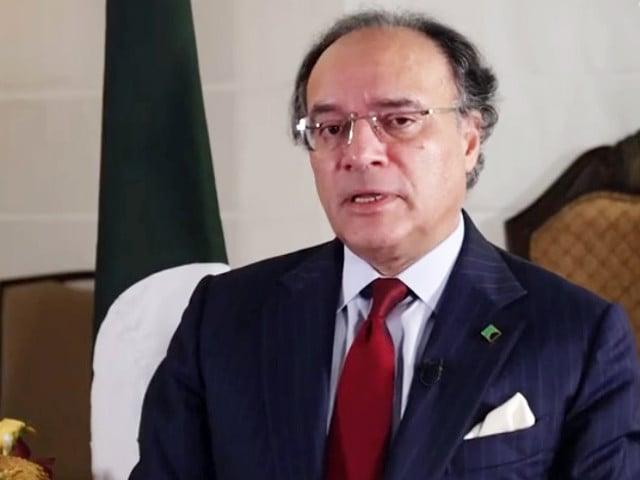The Minister of Finance, Muhammad Aurengzeb, has urged world leaders to reform global commercial policies, arguing that developing nations face excessive tariffs, commercial restrictions and financial barriers that hinder their economic growth and integration into the global economy.
Speaking in the Boao forum for Asia 2025, Aurengzeb highlighted how unfair global commercial practices disproportionately benefit the nations developed, leaving emerging economies that fight high debt loads, commercial imbalances and limited financial access.
He warned that if these inequalities persist, the gap between rich and poor nations will continue to expand.
Aurengzeb emphasized that an inclusive global economy is not an option but a necessity, stating that despite significant economic advances, the current system remains deeply unequal.
He pointed out that although some economies thrive under the existing commercial rules, others, especially those of the global south, are left behind due to systemic barriers.
To address this, he proposed the creation of a global alliance for inclusive trade, urging developing countries to join and sue:
-
Commercial policies fairer that reduce rates and restrictions on emerging economies.
-
Best representation in international financial institutions such as the IMF and the World Bank.
-
Greater access to digital and financial technologies to unite economic disparities.
Aurengzeb also asked to take advantage of technology as an equalizer, proposing the establishment of Global and Fintech funds that would support digital transformation and economic participation in developing nations.
The Minister of Finance emphasized the need for the G20 and the IMF to restructure the sovereign debt to guarantee financial stability in the economies in difficulties. He argued that the current debt system in development of nations in a cycle of financial difficulties, preventing long -term economic growth.
In addition, he stressed the importance of climate finance reforms, noting that although Pakistan contributes to less than 1% of global carbon emissions, it remains among the 10 nations most vulnerable to the weather. He asked for greater international support in finance and climatic technology transfers to help developing countries to mitigate and adapt to climate change.
Aurengzeb described Pakistan’s efforts to strengthen its Economic Foundation, citing initiatives such as the Special Investment Facilitation Council (SIFC) and the China-Pakistan Economic Corridor (CPEC). These projects, he said, have improved commercial potential, attracted foreign investment and improved infrastructure.
However, he pointed out that global cooperation is crucial in areas such as AI, Fintech and digital trade, which could significantly benefit from small and medium enterprises (SME) of Pakistan by opening new economic opportunities.
“The time for speeches is over. It is time for action,” said Aurengzeb, asking global leaders who work together in the construction of a multilateral economy and promoted by innovation that promotes fair trade, sustainable development and equitable financial opportunities for all nations.




